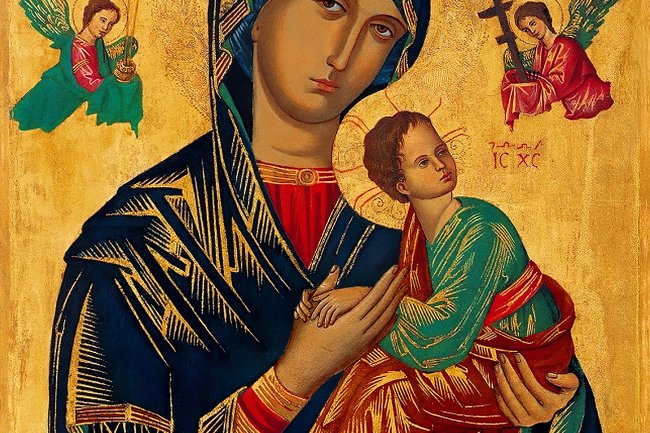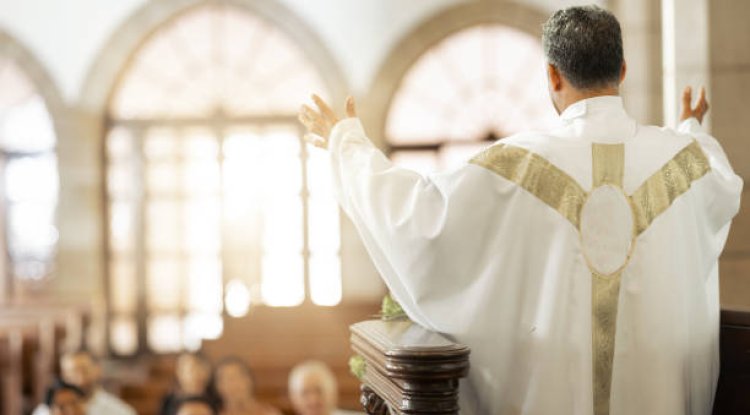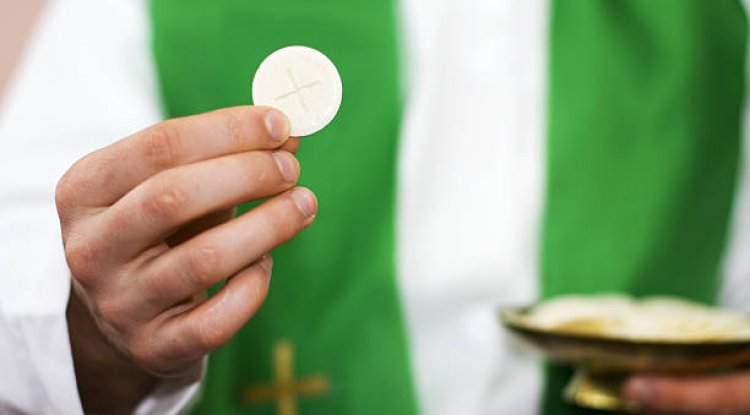COMPLIANCE TO THE LAWS FOR OUR SALVATION
HOMILY FOR TWENTIETH SUNDAY IN ORDINARY TIME, YEAR A. Readings: Isaiah 56:1.6-7; Psalm 67; Romans 11:13-15.29-32 and Matthew 15:21-28.

The liturgy of today focuses on the universality of the church, which is open for all people. It challenges our cultural norms and reminds us of the need for inclusiveness in practicing our faith and belief. In doing so, how can we practically break barriers that separates us without prejudice? Are there ways we have been guilty of excluding people? With compliance to the laws of God, He will bring to us the fullness of His mercy and His plan to save us.
In the first reading, the prophet Isaiah made known to us the promise of God for those outside the borders of Israel. That is why the prophet said, “The foreigners or those considered to be outside the borders, God will bring them to His holy mountain, His salvation will come to them and His deliverance will be revealed. Everyone who keeps the Sabbath and does not profane it, and hold fast my covenant, these I will bring to my holy mountain and make them joyful in my house of prayer” (Is 56:6-7). When God said He will bring the foreigners to his holy mountain, it is Mount Zion, the location of the holy city and the holy temple.
The temple is divided into several increasingly holy areas, to which access was restricted. We have the outer court, to which Gentiles could be admitted, which was called the court of the Gentiles. Any gentile caught trespassing beyond their court will be subjected to death. Similarly with the court of women and the court of Israel, where Jewish men were permitted to go. Access to the court of priest is restricted. Under normal circumstances, foreigners could not go beyond their courtyard and now God is saying, foreigners who join themselves to the Lord and observes his laws, “I will bring to my holy mountain,” where they could offer burnt offering and sacrifices. It sounds as if God intends to admits these foreigners into the court of Priests, because that is where their sacrifices would be offered. Invariably, God intends to break down the barriers that have been established to keep Gentiles in the far reaches of the temple, the barriers that convey special privileges to the Jews and deny those privileges to the Gentiles.
Through the prophet Isaiah, God wants us to realize that His mercy has no limit or boundaries. His mercy is available for all tribe, people, nations, race or language who are ready and willing to accept His invitation to salvation and his mercy is not restricted only to the faithful Israelites. Put differently, the prophet Isaiah tells us that there is no discrimination or favoritism when it comes to God’s mercy. Among us, there should not be any form of exclusiveness but an inclusive attitude towards others, regardless of their background, tribe or religion. We should endeavor to create a receptive community, where everyone feels valued and appreciated, and not a hostile community, looking down on others.
Similarly, Christ in the Gospel extends his salvation to the district of Tyre and Sidon, which were Gentile or pagan territories. Here in these territories, He encountered a Canaanite woman who expressed great faith of intercession on behalf of her daughter who was severely possessed by a demon and needed salvation. At this encounter, the mercy of God is reflected again when she cried out, “Have mercy on me, O Lord, Son of David” (Mt 15:22). Despite her, living among sinners, she recognized Christ as the source of her salvation, making her daughter’s intention her owns’ intention before Christ. Despite the discouragements received when Christ said, “I was sent only to the lost sheep of the house of Israel,” she never gave up in her faith, rather she expressed persistence in a simple and beautiful prayer saying, “Lord help me” (v.24), similar to the prayer of Peter, who cried out when sinking, “Lord save me” (Mt 14:30).
At this point of encounter between the Canaanite woman and Christ, this Gentile territory became a place of prayer, which reflect the prophecy of Isaiah in the first reading, “for my house shall be called a house of prayer for all peoples” (Is 56:7). Not just for the Jews, but now the Gentiles who wish and are ready to respond to God’s invitation. With this in mind, we can say the Church is made up of saints and sinners. Still on her faith, after receiving discouraging words, there came an encouraging word in Christ’s response to her, which is similar to the way He responded to the Roman centurion who interceded for his servant in Mt 8:5-13. Christ said to her, “O woman, great is your faith! Let it be done for you as you desire” (Mt 15:28). Through her faith, her daughter was healed. In fact, two good examples of great faith Christ applauded were from unexpected places (the centurion and the Canaanite woman). This goes a long way to tell us that God’s mission to save us (sinners) has no boundary.
In the second reading, God’s abundant mercy keeps reflecting as he allows Israel to stumble so that salvation can reach the Gentiles. St. Paul as a Jew extends the mercy of God to the Gentiles so that they can be part of His salvation plan. This extension of God’s mercy is made visible in today’s reading when he referred to the Jews saying, “Just as you were once disobedient to God but now have received mercy because of their disobedience, so they have now been disobedient in order that by the mercy shown to you they also may receive mercy” (Rm 11:30-31). This way, St. Paul wants us to realize that both Jews and Gentiles have broken the laws of God, yet God offers us mercy and reconciliation through his Son Jesus Christ, which is the gift of God to humanity and it is irrevocable. This means God will never give up on us, despite our constant breaking of the laws, he will keep showing mercy; for mercy is His nature. He is a God, who does not wait for his people to violate the laws in other to execute adequate punishment without hesitation. He is full of mercy. As Pope Francis will say, “God is not tired of forgiving. It is we who are tired of asking for forgiveness.” Why can’t we be like God?
We are encouraged to constantly seek the mercy of God and reciprocate it to others. Let us pray like the Canaanite woman to constantly keep God’s laws at heart and ask Him for mercy in moments we have sinned against Him. Let us be persistent in prayer and trust in God’s providence. Let us create an inclusive and hospitable environment for others. Humanity comes before religion.
Happy Sunday
Fr. Ken Dogbo, OSJ
What's Your Reaction?



















